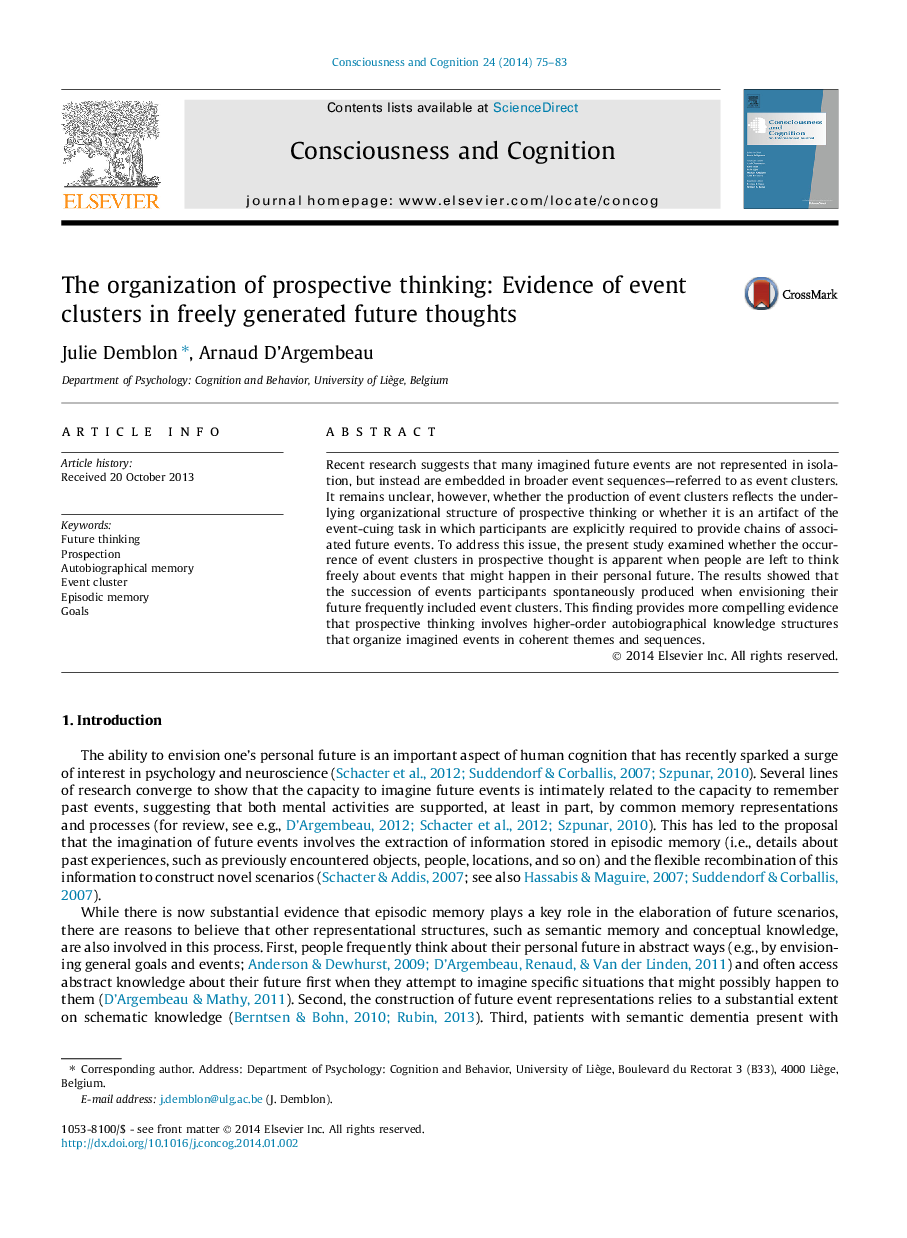| Article ID | Journal | Published Year | Pages | File Type |
|---|---|---|---|---|
| 927583 | Consciousness and Cognition | 2014 | 9 Pages |
•We explore whether event clusters occur spontaneously during prospection.•Event clusters are frequent in freely generated future thoughts.•Events clusters are more frequent when envisioning the distant future.•Inner speech may support causal relations between imagined future events.•Goals, chronology and thematic lines link successive events in organized sequences.
Recent research suggests that many imagined future events are not represented in isolation, but instead are embedded in broader event sequences—referred to as event clusters. It remains unclear, however, whether the production of event clusters reflects the underlying organizational structure of prospective thinking or whether it is an artifact of the event-cuing task in which participants are explicitly required to provide chains of associated future events. To address this issue, the present study examined whether the occurrence of event clusters in prospective thought is apparent when people are left to think freely about events that might happen in their personal future. The results showed that the succession of events participants spontaneously produced when envisioning their future frequently included event clusters. This finding provides more compelling evidence that prospective thinking involves higher-order autobiographical knowledge structures that organize imagined events in coherent themes and sequences.
